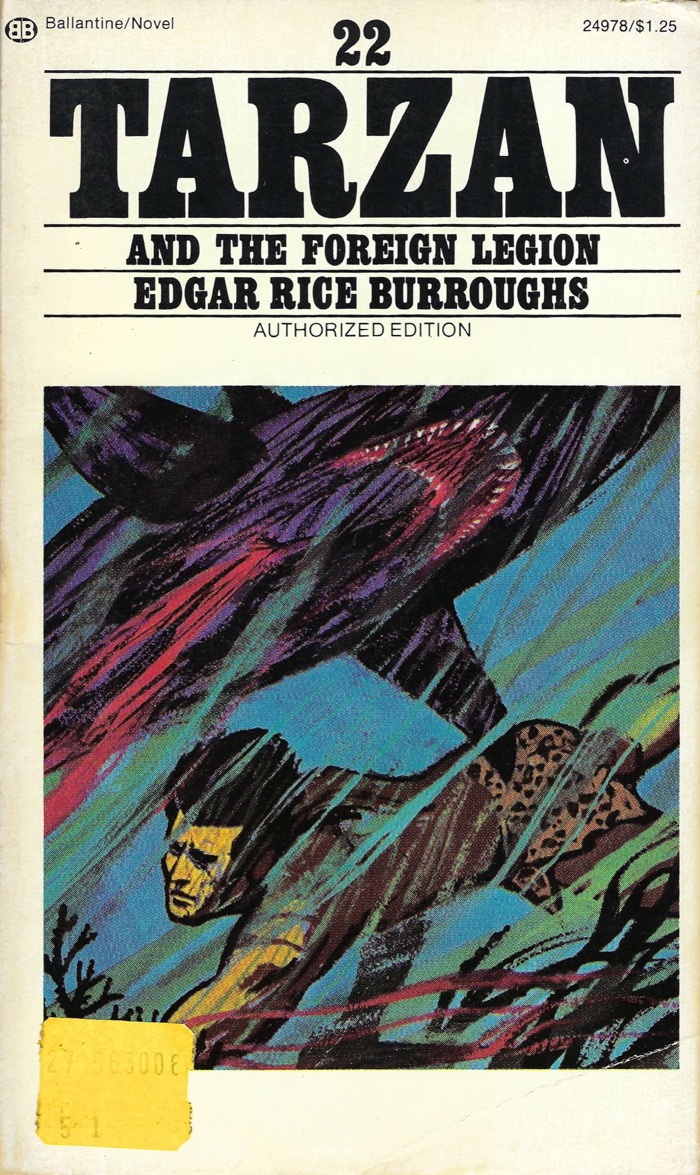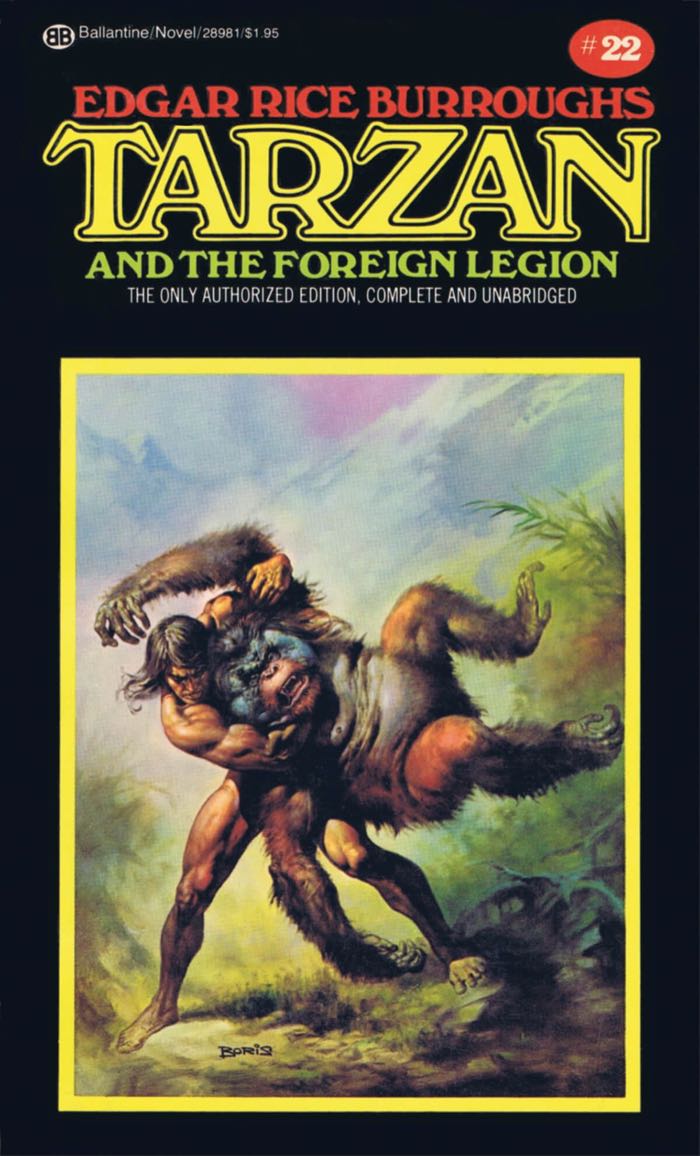Tarzan and the Foreign Legion
Series: Tarzan 22
Reviewed date: 2023 Jan 22
Rating: 2
192 pages
When I hear Foreign Legion I think French Foreign Legion. That's not what this is. This would be better titled Tarzan Kills Some Japs.
Tarzan is an RAF Colonel in WWII and gets shot down over Sumatra. He kills a tiger, a rhinoceros, a python, an orangutan, and countless Japs. *sigh* This time Tarzan at least vows only to "kill every Jap I can until the war is over" instead of swearing eternal vengeance on all Germans everywhere like he did in WWI. ("he cursed their progenitors, their progeny, and all their kind the while he took silent oath to war upon them relentlessly until death overtook him." - Tarzan the Untamed, chapter 1.)
The book is both standard Tarzan fare--various troupes marching through the jungle with the heroes and heroines being captured, escaping, recaptured, etc.--and also distinctly different: the heroes (that is, Tarzan, the Americans, and the Dutch) ponder the depths and meaning of their hatred for the Japanese. It's at times almost philosophical. I also found interesting a bit right near the end when a Dutch character defends colonial rule in Indonesia by declaring that Indonesians fared better under the Dutch than they did on their own: "Under us Dutch, the Indonesians have known the first freedom from slavery, the first peace, the first prosperity that they have ever known. Give them independence after the Japs are thrown out and in another generation they'll be back where we found them."
The Americans are unimpressed and unconvinced: "I thought that freedom was one of the things we were fighting for."
So I guess ERB is for Indonesian independence? Maybe I shouldn't read too much into it.
The portrayal of the Japanese in this book is atrocious. Every single Japanese soldier revels in committing war crimes, and those who aren't officers are stupid to boot. The book calls them monkey-men and their language "monkey jabber," and that's from an authorial voice as well as from a character's. The Japs (as the book consistently refers to them) are so bad that even their wounded refuse to give up fighting, which twice necessitates the execution of wounded Japanese prisoners of war. I don't much like my heroes committing war crimes.
Then again, in reality the Japanese did commit unspeakable and unforgivable war crimes against the Indonesians. Some were later tried and executed for their war crimes. Some served lesser sentences. But I presume the Japanese soldiers who committed everyday cruelties and "retail" war crimes (as opposed to the large-scale organized war crimes) largely got away with it. I don't feel too much sympathy and don't object too much to the way ERB portrays them in Tarzan and the Foreign Legion. The Japanese soldiers earned that portrayal.
An aside: I am intrigued at how Japan seems to have completely changed its national character and turned away from militarism and cruelty. I don't know how they did it. In my lifetime I haven't seen or felt any connection between the Empire of Japan and the current Japan of Toyota, Sony, Nintendo, anime, and other fine products. But perhaps it's easier for Americans to forgive and forget and leave the Empire of Japan to the history books than it is for the people of Indonesia, the Philippines, Korea, China, and the other nations of southeast Asia that suffered so much under Japanese occupation.
But back to the book. Overall, I think it's a failure. I appreciate the attempt to update the setting. It's fun to see Tarzan in Sumatra instead of Africa. And given my connections to Indonesia (though I've never been to the island of Sumatra) it was doubly fun for me. But the choice to make the book entirely about hating and killing the Japanese was a mistake. Tarzan is best when Edgar Rice Burroughs is inventing strange lost civilizations deep in the jungle. There is none of that here. It's just Tarzan killing Japs. There are plenty of other ways to learn about the atrocities of the Empire of Japan. Leave Tarzan out of it.
Other thoughts: there's one incident where a Dutch officer has a village chief shot for collaborating with the Japanese. Is that a war crime? I'm not sure. It's realistic, I'm sure, but I don't know the rules of war as well as I should. There's certainly no trial, so I think that's a problem. On the other hand, the guy is guilty. On the third hand, I don't know that it's a crime to side with the Japanese who are driving out the Dutch colonialist authorities. Sure, the Japanese ended up being more cruel, but I don't know that it's automatically a crime worth the death penalty for a tribal chief to side with the Japanese over the Dutch.

